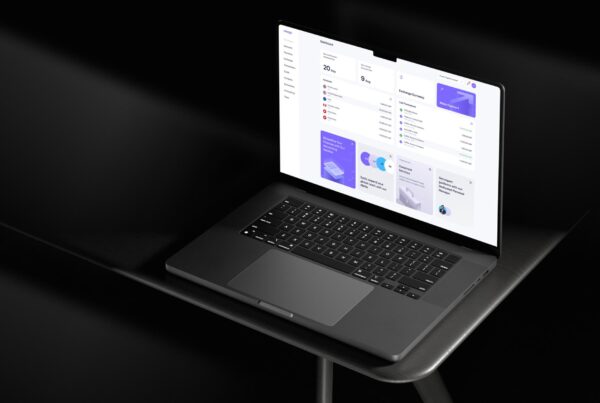Starting a business has never been more accessible, and the UK is a region primed for inspired entrepreneurship. But even the greatest business idea won’t get off the ground without a strategy.
One of the most important decisions you will make in your startup journey is what business model to build your company around. Are you going to try and follow a traditional business model – one built around consumer-to-business (C2B) or business-to-consumer (B2C) transactions? Or will you go the route of the subscription business model and create a steady stream of recurring revenue?
To help you get off on the right foot, let’s look at some of the top business models for startups in the UK – and how you can choose the right type for your future endeavours.
Subscription-Based Models
We can’t talk about startup business models in the UK without mentioning one of the fastest-growing types: subscription businesses.
The subscription business model has revolutionised how modern companies generate revenue. A great example is Revolut, a UK fintech success story that switched up the traditional banking method by creating unique tiered subscription plans for their various services.
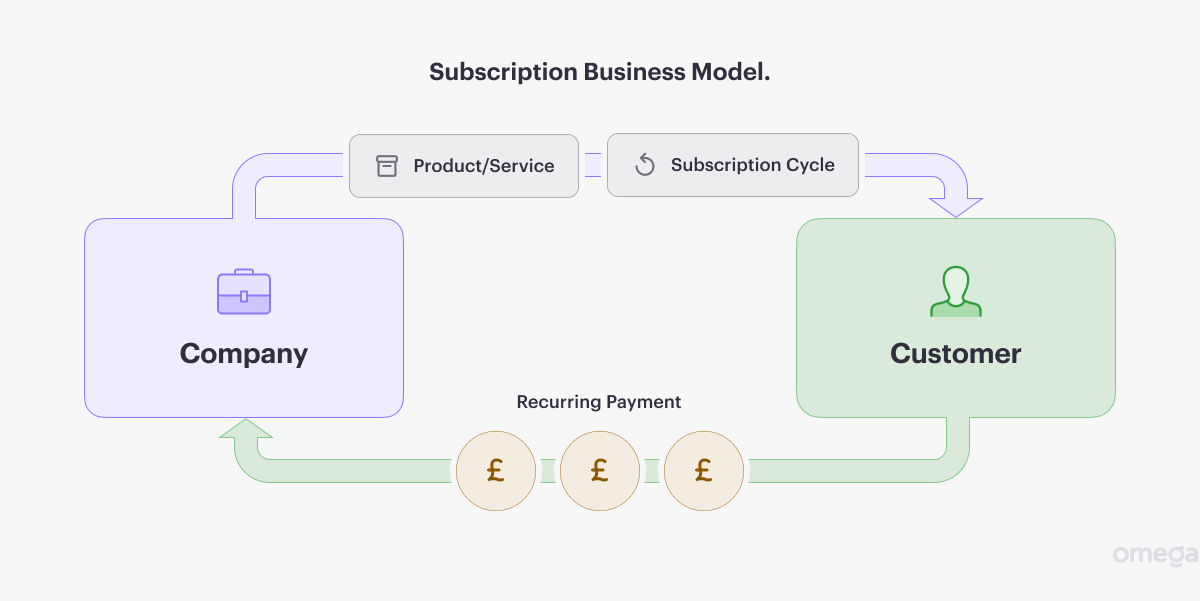
While many companies try to customise every experience for customers, this can potentially create friction in connecting consumers with what they want. The subscription style gives customers the freedom to choose what they want, and then set it on autopilot.
For startups, subscription-based services have some benefits that make it enticing – especially for those looking to reduce their overhead:
- Ongoing and predictable monthly revenue.
- A higher customer lifetime value (CLV).
- Simplified cash flow forecasting.
- Lower customer acquisition costs (CAC).
This doesn’t mean that subscription business models are perfect for every startup. As your startup grows, you will need the infrastructure to keep all your business data clean – particularly as you sell services across borders.
That is why having a financial services partner to help handle subscription payments across various currencies is key!
Marketplace and Platform Models
Marketplace and platform business models are another top choice for UK startups – especially in the “everything has an app” generation. With this model, you offer services via a marketplace or platform (think Uber and DoorDash.)
Built around single service offerings, these companies are particularly adept at managing supply and demand and can adapt as needed.
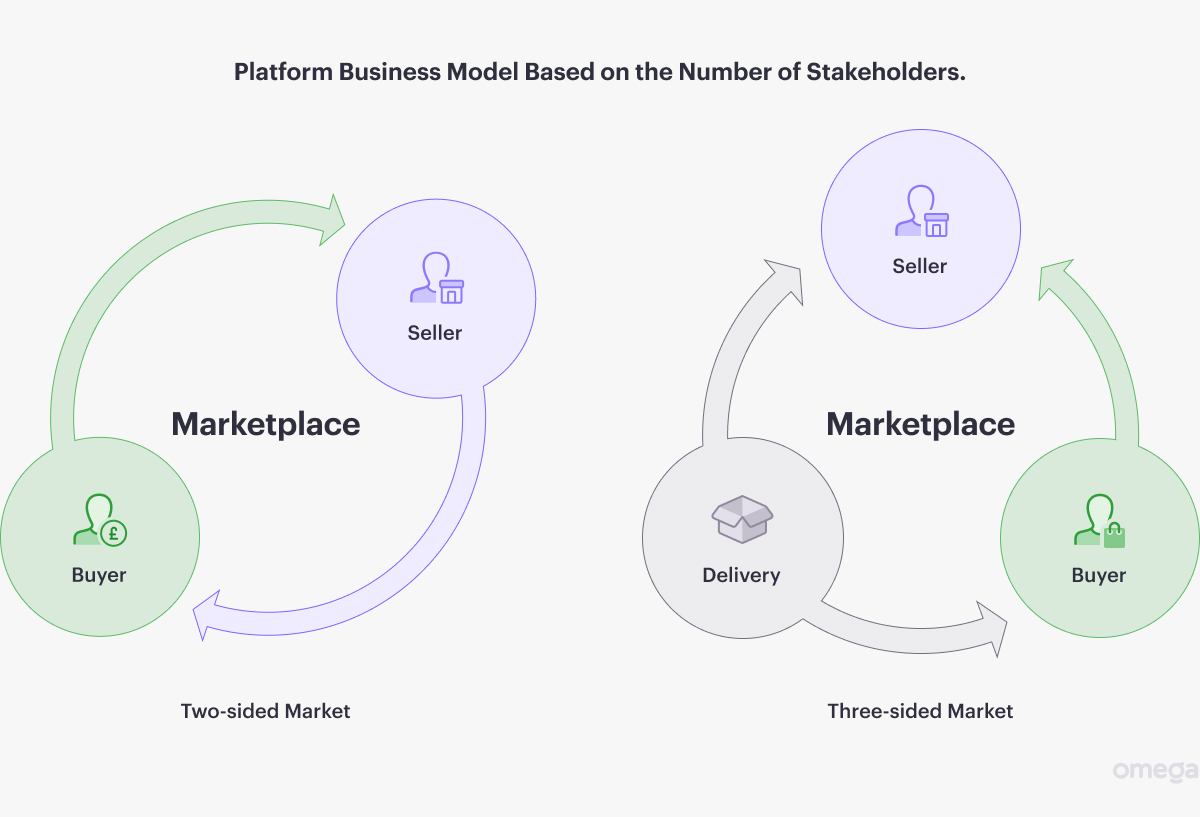
The platform business model has produced some of the UK’s most impressive startup successes. A top example is Deliveroo, which connects restaurants, riders, and hungry customers via its platform, which keeps everyone happy (and paying!).
The benefits will vary depending on the type of company you are, but platform businesses like Deliveroo enjoy:
- Increased revenue via commission fees from restaurants.
- Revenue via delivery fees from customers.
- The opportunity to boost profit via premium partnership programmes.
- Ongoing revenue via subscription services.
The Freemium Model
One of the more interesting, if not riskier, startup business models is the freemium business.
Freemium models have become popular among UK tech startups as a way to invest a little up front to create lifelong fans of the company. With freemium models, startups offer a set of services for free to bring customers in the door.
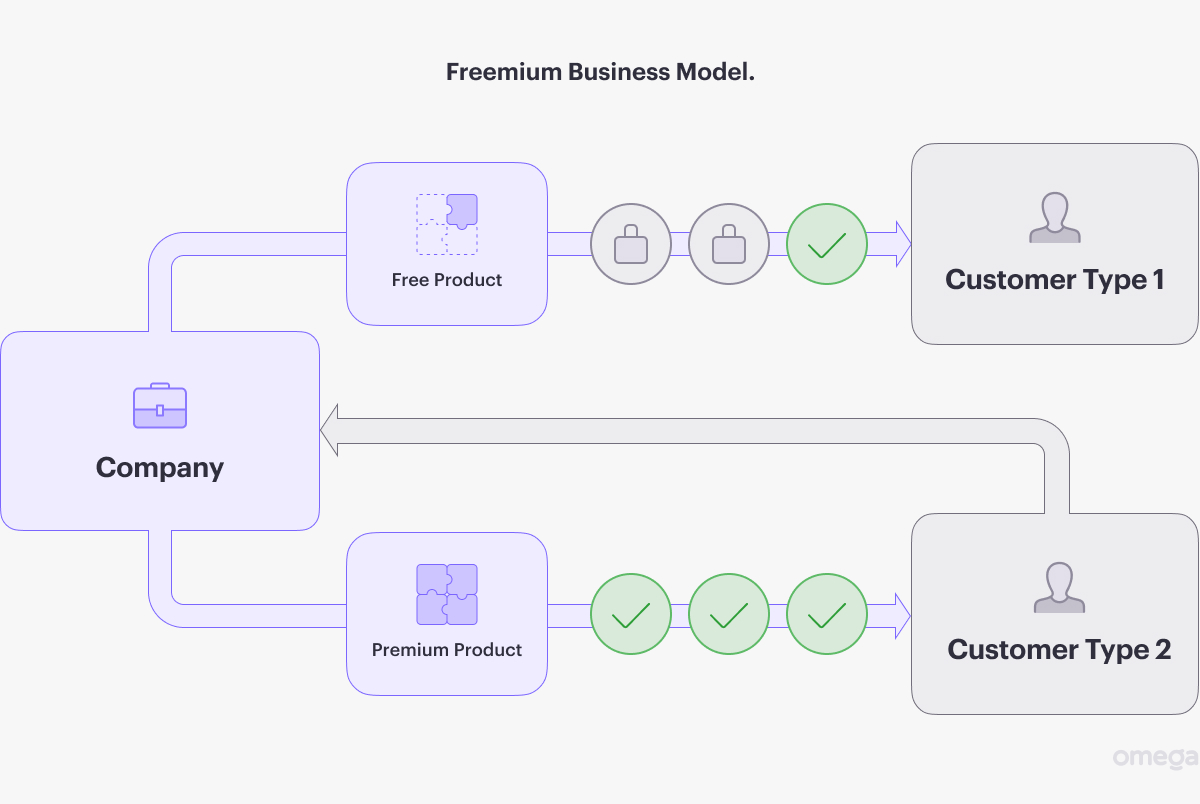
By providing excellent service and customer experience, customers may opt to pay more for premium services just above the free options.
Babylon Health is one of the startups that has shown how effective this model can be when done right, offering basic health consultations for free while charging for premium services like specialist appointments and advanced health monitoring.
Freemium business models require a bit more strategy than the average startup process, as you will need to be prepared to offer excellent services for free and have a knack for converting those free experiences into paying customers.
Here are a few of the key parts of this model:
- A compelling “free tier” that shows the value your company brings.
- Exciting “premium features” that solve real pain points.
- A clear and easily accessible upgrade pathway.
- An efficient payment processing for conversions.
As you can imagine, managing the transition between free and paying customers requires some business savvy. Having a team in your corner who can help you plan and implement a freemium startup model will boost your chances of surviving those early days.
Direct Sales
The above business models for startups have caught headlines, yet there are still traditional methods that work just as well. One of those methods is the direct sales model. This model involves selling goods and services directly to consumers without a third party. In other words, the customer has a need; you provide it!

If you have a niche target market and an excellent sales team, the direct sales business model still works wonders. Best of all, this model helps you create personal relationships with your customers that can keep them coming back.
Hybrid Models
If you can’t already tell, the most successful UK startups actually combine the best elements of all of these models to create a hybrid. Like Deliveroo, which offers a subscription model option within its platform model, finding the best parts of all business types and applying them to your startup is the ultimate goal.
The key to selecting the right business model isn’t just following what is trendy – it is understanding what works best for your specific venture.
Is your goal to scale and reach a large subscriber base? Or are you looking to create deep connections with your customers who will pay more over time? Knowing which type of customer will best fit your services – and how they will grow with you over time – will determine which model is best.
Set Yourself Up for Startup Success with Omega
Whatever business model you choose, having the right financial infrastructure matters. Competing in the global marketplace requires you to have a finger on the pulse of the economy, and the ability to adapt as markets shift.
At Omega, we are a financial partner who understands your business’ challenges. That is why we have built business accounts specifically designed to support various revenue models with features that fit your business model – even if it changes!
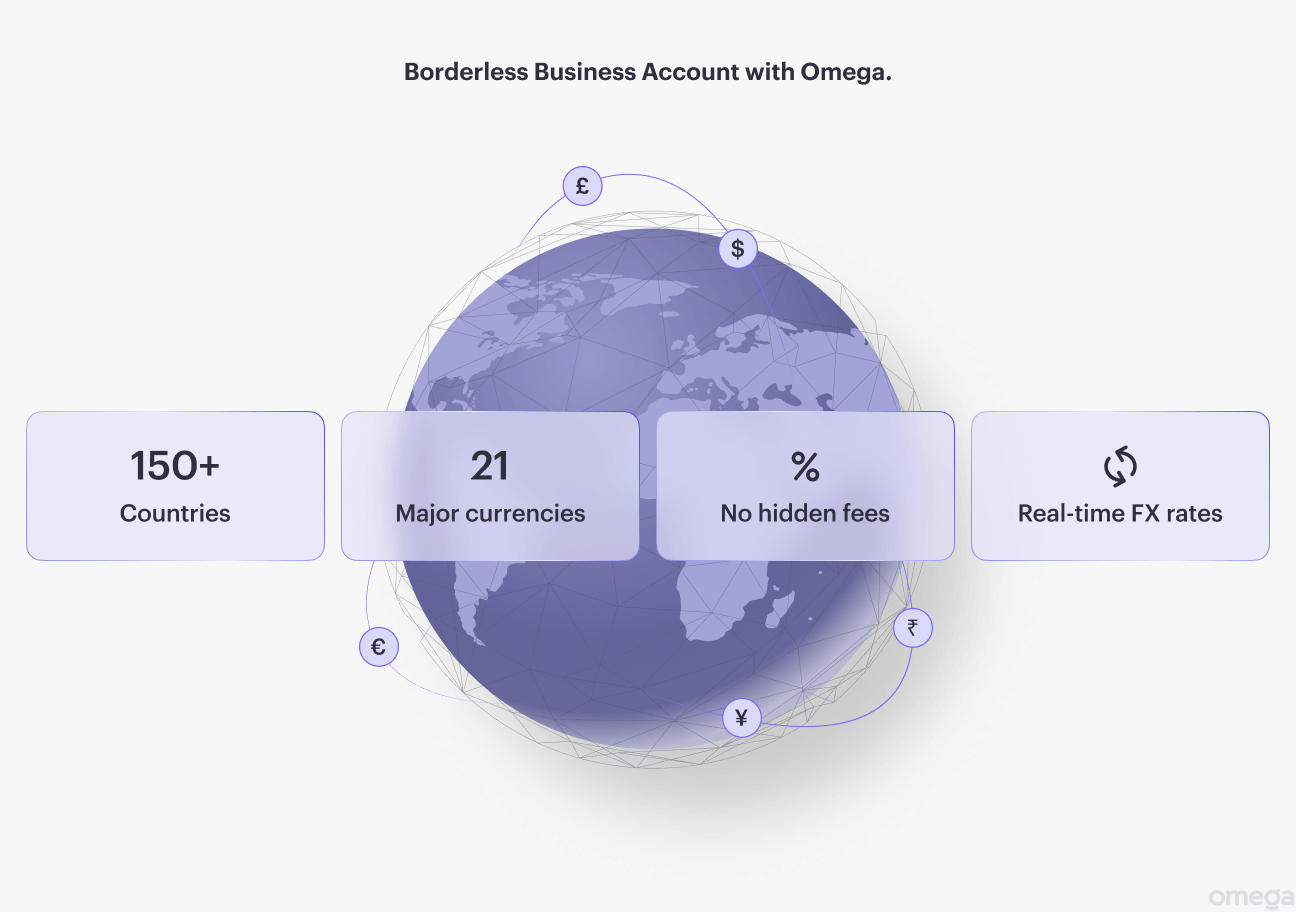
Whether you are launching a subscription service, building a marketplace, or combining multiple revenue streams, our team is here to guide you through the details. Let us help you handle the finances while you build your dream company.
Want to learn more? Visit Omega today to learn how our business account can support your startup business model and set you up for success.


